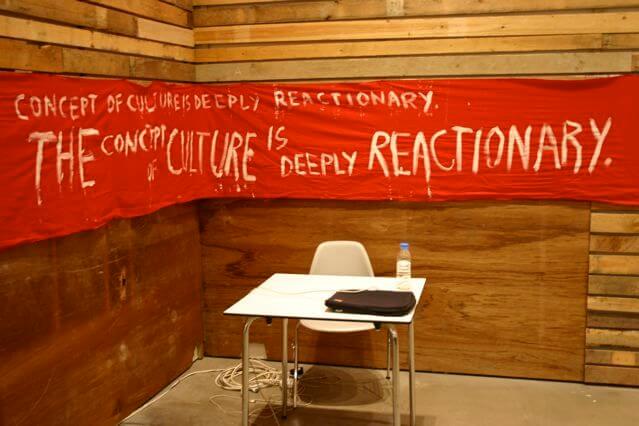Platform seeks funding from a range of sources. Most of our funding comes from charitable foundations and we are increasing our funding from individual donors and earned income. Our fundraising seeks to be ethically consistent with our values and is guided by internal guidelines on ethical fundraising which have been developed over the years.
The overall guidelines are simple: we aim to avoid wherever possible seeking or taking money from funders who make their income from activity that abuses human rights, or causes environmental destruction or depend on the depletion of finite resources. We actively seek to promote economic activity which is based on promoting social justice, safeguarding the environment and the future of precious resources. These values guide us over the source of finance for our work as well as the ethical sourcing of materials, services, and goods.
There are often ethical complexities that we tackle on a case by case basis. For example, many foundations and trusts fund important work on human rights or on environmental issues. However, some only exist because of profit from business activity which caused such problems in the first place. Is the money and activity “cleansed” through the founding of a charitable trust? Or is it greenwash? We do a lot of research before approaching a funder to ascertain their core values, the business source of the income, and the relationship that the foundation has with the business that created the profit. If there is a parent company still in existence, and a close strategic relationship between company and funder, we look particularly to whether the foundation is mostly fulfilling a PR function. Regardless of the ‘good work’ of some foundations and trusts, if their name is associated with a company or regime that is shown to cause environmental or human rights abuse, we would seek to avoid them. In terms of the State, we won’t seek money from governmental departments or initiatives which are involved in the abuse of human rights or the exploitation of finite resources.
Platform believes that this side of the work is as much a part of making and influencing culture as our project work. It is another strand of political activity, and never just about filling the coffers. So a variety of strategies exist: there is a role for positive disengagement, in other words, making it plain why certain funding, funders or financial relationships are a problem for us. There is also sometimes a place for advising the funder or organisation on what would have to change in their business activity, relationships or values for us to feel comfortable about being funded by them. On occasions, organisations we really like are in bed with funders who we ourselves couldn’t work with, which is another opportunity for us to raise issues in private or in public.
Good research is essential to establish the values, background source of income, and also the networks of any prospective funder. It’s important to fully consider the risks of compromise – not only to ourselves but also to our relationships with allies – and to scope out the potential damage of any prospective relationship. Splits over ethics and funding are not uncommon and can have lasting impacts. In-depth research and systemic analysis can help avoid this happening.
Platform established a short-term post in Ethical Funding in the late 90s, and undertook a 2-year national network project on ethics and funding called “Funding for a Change”. After that intensive research phase, our thinking has continued to evolve. There is no money that is ever totally “clean”, and it is an illusion to think so. However, our overall work is to reveal and highlight how capital is made, and what the human and environmental costs involved are. And that includes the funding and financing which supports us.
(Last update March 2012)
